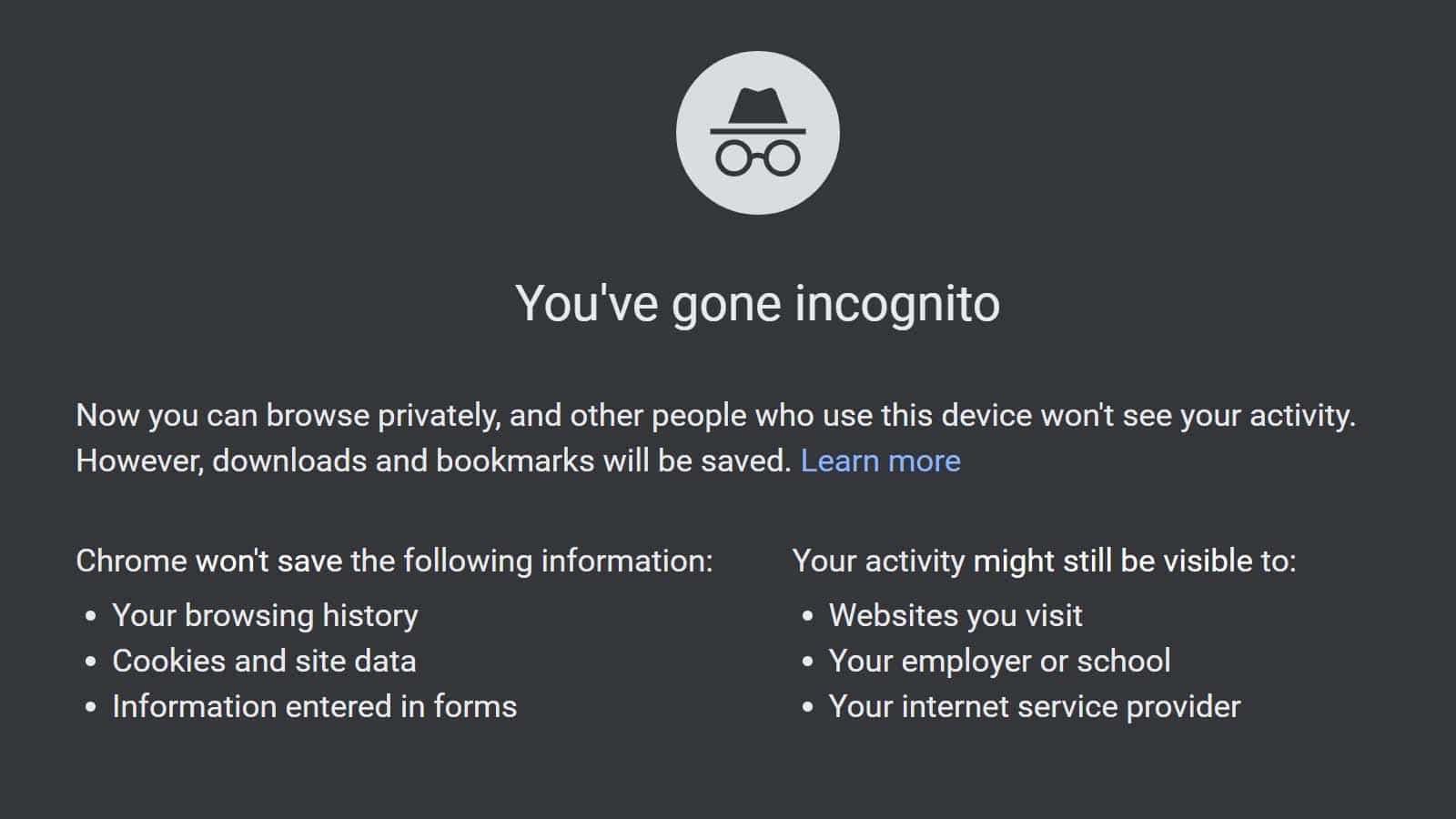Google knows Incognito Mode is deceptive for its users
It doesn’t keep you safe, you need a VPN for that.

Just a heads up, if you buy something through our links, we may get a small share of the sale. It’s one of the ways we keep the lights on here. Click here for more.
If you’ve been thinking Incognito Mode in Google Chrome keeps your browsing safe, prepare for a shock. It doesn’t, and Google knows it.
The feature does keep your browsing history safe from other people who use your physical device.
That means your browsing history and on-device cookies from the Incognito session don’t exist once you close the browser.
That doesn’t stop Google, any of the websites you visit, Facebook, or anyone else from using tracking cookies to know what you’ve been up to.
And the kicker? Google knows that Incognito Mode lulls users into a false sense of security.
Google knows Incognito Mode confuses users

This is the screen you see when you open a new tab in Incognito Mode in Google’s Chrome browser.
Note that nowhere does it say that Google might be tracking your online activity in this mode while being clear that websites, your employer or school, or your internet service provider might.
In 2020, Google was sued in a potential class-action lawsuit. The lawsuit’s central claim is that Google still tracks browsing data, even in Incognito Mode.
Last year, a District Judge dismissed Google’s motion to dismiss. She reasoned that Google’s privacy disclosures didn’t explicitly say it tracks users using Incognito Mode.
Google knows this, as documents used in the court filings show (via Bloomberg).
Even their Marketing Chief, Lorraine Twohill, knew as she sent CEO Sundar Pichai an email containing a recommendation of making “Incognito Mode truly private.”
The case, Brown v. Google LLC, 20-3664, had a hearing on Tuesday to see if the tens of millions of Incognito Mode users could be grouped into a class-action lawsuit.
If the District Judge decides they can, statutory damages could be between $100 and $1,000 per violation — which would be an astronomical amount of money.
We’ll bring you the hearing results as soon as we find out.
Have any thoughts on this? Carry the discussion over to our Twitter or Facebook.
Editors’ Recommendations:
- This new app beeps whenever Google tracks your computer
- Donald Trump’s Truth Social is now available on Google Play
- Meta and Microsoft team up for better VR productivity and gaming
- New Google Search feature alerts you when it finds personal info






























